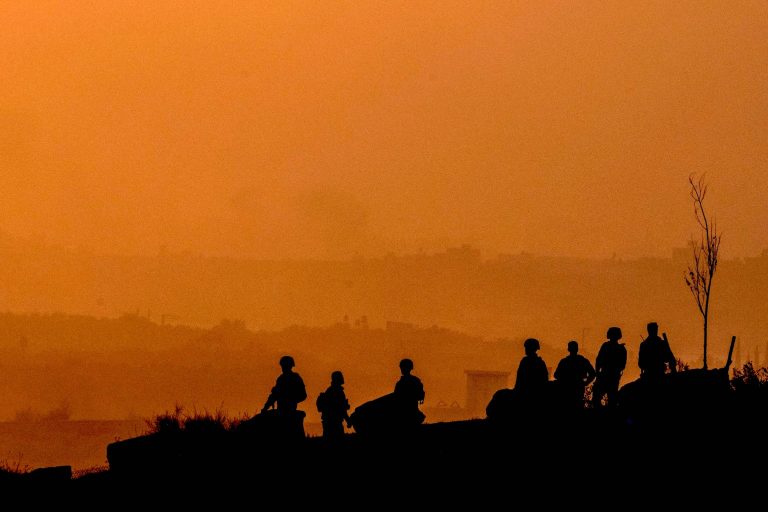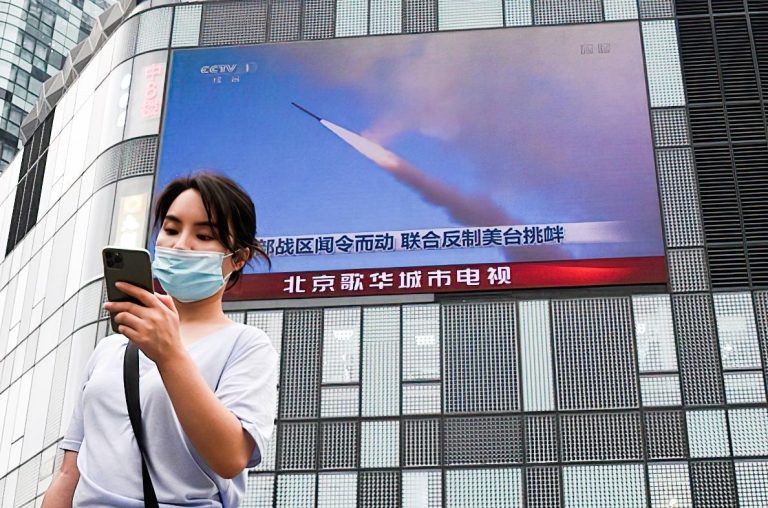By Cao Changqing
Hamas’ sudden attack on Israel resulted in significant civilian casualties, and Israel’s military retaliation also led to civilian casualties. The world is divided on this issue, with some supporting Israel and some supporting Palestine. Who is more reasonable in this matter?
Those who support Palestine primarily emphasize two points: first, Palestinian refugees have no country and are very unfortunate; second, compared to Israel, Palestine is the weaker party, and we should sympathize with the weaker side. It is a fact that Palestinians have no country, and Palestinian refugees are in a pitiful situation. But the question is, who is responsible for this situation? Is it all Israel’s responsibility?
Regarding the Israel-Palestine conflict issue, it is necessary to respect history and face reality in order to achieve justice and fairness.
Surrounded on all sides
Palestinians have no state, and Israelis, too, spent thousands of years without a state, wandering everywhere. Historical records indicate that over a thousand years before Christ, Israelis were already living in that piece of land in the Middle East, which is the homeland of the Jewish people. However, due to the occupation of the ancient Roman Empire and subsequent Ottoman imperial rule, the Jewish uprising was suppressed, leading to Jewish displacement and settlement around the world.
Success
You are now signed up for our newsletter
Success
Check your email to complete sign up
The establishment and demarcation of many countries in the world today were determined after the end of World War II. Prior to that, there were many fluctuations, and there was no history of who was an integral part of whom. In 1922, the area in the Middle East that is now Israel, Jordan, and the Gaza Strip was all under the mandate of the precursor to the United Nations, the League of Nations, authorized by the United Kingdom.
After World War II, the United Nations was established, and the British mandate came to an end. In November 1947, the U.N. passed a resolution to establish two states in the Middle East: the State of Israel and the State of Palestine. At that time, the U.N. had only been established for two years and had just over 50 members. The “Resolution 181,” with 33 votes in favor (representing 58 percent of United Nations members), 13 votes against, and 10 abstentions, was adopted.
After the resolution was passed, Jewish people established the State of Israel on May 14, 1948, following six months of preparations. Two years later, they joined the U.N. However, the Palestinians did not establish their own state.
Those who today condemn and accuse Israel of preventing the Palestinians from establishing a state must first face a question: when the U.N. had already passed a resolution agreeing to the establishment of a Palestinian state, why didn’t they create one? The Palestinians failed to fulfill their responsibility to build their own country, so how can the blame be placed on Israel? Therefore, the condemnation of Israel in this regard is entirely unjustified.
Both Israel and Palestine were authorized by the United Nations to establish their own countries. Israel established its own country, while Palestine did not. This is entirely the responsibility of Palestinian intellectuals and politicians, a result of their negligence and incompetence, and has nothing to do with Israel.
On the second day of Israel’s founding, it was invaded by five neighboring Arab countries: Egypt, Syria, Jordan, Iraq, and Lebanon, as well as Palestinian guerrilla groups. Instead of building their own state, they focused their efforts on violently opposing Israel’s existence.
At that time, Israel had no regular army; it was just the second day after its establishment, with a militia force only around 30,000 strong. However, the people of Israel united against their common enemies. Jews from around the world returned to their homeland and put forth their full effort to resist the invasion. In the end, they prevailed and ensured Israel’s survival.
Occupying land in Israel and Palestine
Why did five Arab countries arm themselves to invade the newly established Israel? Apart from not wanting Jewish existence in the Middle East, there were other motives behind it: they aimed to seize the land that the United Nations had designated for the establishment of Israel. When these attempts failed, they instead partitioned and occupied all the land designated by the United Nations for the establishment of a Palestinian state: Egypt occupied the Gaza Strip, and Jordan occupied the West Bank, which were the main territories that the U.N. had agreed would be part of Palestine.
The Palestinian refugee issue dates back to the first Middle East war when five Arab countries jointly invaded Israel, resulting in the creation of 700,000 refugees. Palestinians were left homeless, scattered in locations such as the Egyptian-occupied Gaza Strip and the Jordanian-occupied West Bank.
When people discuss Palestinian refugees today and express sympathy for these homeless individuals, the first question to ask is, who caused this situation? The answer is clear.
As is well known, many countries in the Middle East are incredibly wealthy due to their oil reserves, essentially sitting on a goldmine. If these Arab countries (the Arab League has 22 member states) would accommodate and accept Palestinian refugees, the situation for the Palestinian people would not be as dire. However, up to this point, these Arab countries have all refused to accept the refugees, forcing many of whom instead travel long distances to Europe. So, when these Arab countries now loudly decry the plight of Palestinian refugees, it is utterly hypocritical because with just a little effort, they could improve their living conditions.
Therefore, the refugee issue is a matter of fundamentalist Arab countries opposing the existence of a state in the Middle East that was approved by a U.N. resolution, namely Israel.
Eradicate terrorism and ensure peace
In the first Middle East war of 1948, a coalition of five Arab countries attempted to invade Israel but failed. In 1967, after 19 years of planning and preparation, they once again attempted a joint invasion. The balance of power was highly uneven, and Israel couldn’t afford to wait, deciding to preemptively strike, resulting in another victory against five Arab nations. Israel pursued its advantage, occupying the Sinai Peninsula of Egypt and capturing the strategic “Golan Heights” that Syria used to attack Israel. However, just ten days after the war, the Israeli cabinet passed a resolution to “exchange land for peace.”
Israel was willing to return the occupied territories as long as the surrounding Arab nations recognized Israel’s existence and refrained from pushing the Jewish people into the sea. Egypt later recognized Israel, established diplomatic relations, and received the return of the Sinai Peninsula. Syria, on the other hand, still does not recognize Israel, and the Golan Heights remained unreturned.
The same principle applies to the Gaza Strip. As early as 1994, Israel handed over 80 percent of Gaza’s territory to Palestinian administration and fully withdrew its forces in 2005, including Israeli residents who had lived there for many years, relocating them within Israel. All of Gaza was returned to the Palestinians. However, Hamas turned Gaza into a military base for launching attacks on Israel.
In the three years following the Israeli withdrawal, Hamas fired over 6,000 rockets into Israel territory, causing numerous civilian casualties. Therefore, the true reasons behind past Middle East conflicts, the Israeli-Palestinian conflict, and the recent Hamas attacks on Israel, are also the key issues.
Today, everyone who supports the Palestinian people should also support Israel because while Hamas indiscriminately kills Israeli civilians, they use the Palestinian people as shields, disregarding the well-being of their own people. Only by eliminating these terrorists like Hamas and preventing them from continuing to harm their own people can there be a possibility of addressing the Palestinian refugee issue, the question of Palestinian statehood, and ultimately achieving peace between Palestine and Israel through negotiations.
Cao Changqing is an Chinese-American writer and critic, as well as host of the video channel Changqing Forum (長青論壇). He has served as a columnist and speaker for Chinese-language media outlets such as Formosa Television, Voice of America, Radio Free Asia, and NTD Television.













